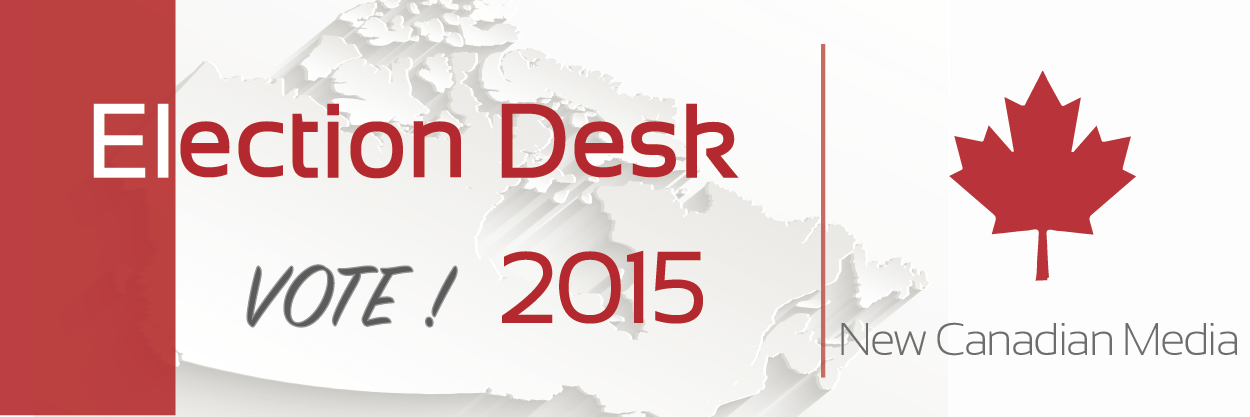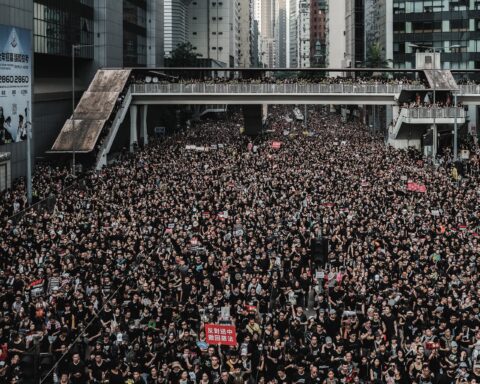Every city has its own urban legend. Vancouver’s fantasy over the last few years is that it has the world’s second most unaffordable housing.
On the back of this piece of unchallenged, unverified claim, Canadian opinion makers and media have been portraying a city pushed to a breaking point by a runaway housing crisis caused mostly by wealthy immigrants and corrupt Chinese officials fleeing to Vancouver with stolen money.
A more twisted version paints Canadians of Chinese descent as Beijing’s pawns in a long-term chess game to take over Vancouver and its housing market.
Either way, the city’s rising housing cost has become an issue in this year’s federal election with Chinese buyers firmly cast as the villain in profiteering at the expense of the city and its regular working people.
The political pressure has led Prime Minister Stephen Harper to announce his government is investing $500,000 to gather “comprehensive data” and study the impact of foreign investment in Canada’s real estate market.
This special five-part series deconstructs the narrative to present the issue in a broader framework.
The populist narrative on housing affordability in Vancouver ignores the big-picture need for foreign trade, investment and talent to drive Canada’s mid-sized resource-dependent economy.
In a June 5 study, the B.C. finance ministry said any moves to drastically curb foreign investments could lead to wider negative repercussions that would result in the loss of C$350 million or 0.2 per cent of the province’s Gross Domestic Product (GDP).
It warned that roughly C$1 billion in residential real estate sales and around 3,800 jobs would be lost, mainly in the construction and real estate sectors.
B.C. officials have good reason to fear, seeing how quickly the collapse of the oil, gas and commodity markets is crushing the once red-hot housing markets in Calgary and Fort McMurray.
Foreign investors are fleeing or refusing to invest in Alberta – the same ones that three years ago some in the Canadian media and government attacked for trying to invest in Canada’s oil sands reserves.
Trade with Asia
Notwithstanding the current problems in most emerging economies, Canada needs to continue to grow trade with Asia and reduce its overwhelming dependence on the U.S., said Stewart Beck, President of the Asia Pacific Foundation of Canada, in a recent interview.
Canada’s trade with Asia has grown from C$86 billion in 2004 to over C$155 billion last year, with China accounting for half that share.
In a recent interview, Yuen Pau Woo, the CEO of HQ Vancouver, said the media should highlight the far more important contribution of foreign investments in creating employment and business opportunities for Canadians.
In a recent interview, Yuen Pau Woo, the CEO of HQ Vancouver, said the media should highlight the far more important contribution of foreign investments in creating employment and business opportunities for Canadians.
Launched in February, HQ Vancouver is a partnership between the Business Council of B.C. (BCBC), and the B.C. and federal governments to attract Asian companies to set up their head offices in Vancouver.
At a March 31 event to launch a book on China by former diplomat David Mulroney, Woo spoke of the need for Vancouver to boost income-generating activities and businesses to enable its residents to live and prosper in the city’s increasingly costly environment.
His speech was not reported in the media; outlets focused instead on Mulroney’s political concerns with China and, of course, Chinese buying Vancouver real estate.
But Woo followed up in September with a criticism of the Globe and Mail for publishing a centrespread feature on Chinese buyers of Vancouver mansions, while ignoring “the news about a similar set of Chinese immigrants who announced an investment of $200 million in a manufacturing facility in Surrey (F-Pacific Optical Inc.) and the establishment of a North American head office in Vancouver.”
“Why is the media more interested in the houses that these immigrants buy than in the job-creating investments that they make?” he wrote in TheTyee.ca.
He called for “a stop to the insidious characterization of Chinese investors as villains in our affordability problems,” and for Vancouverites to “seize on the presence of so many well-heeled entrepreneur and investor immigrants … to attract new business capital to the province, create jobs and raise incomes.”
Negative media, hate crimes
But his message still fell flat for some Canadians, who are stuck with the media’s negative portrayal of Asian investment in Vancouver’s housing market.
The pervasive negative media reports may have led to at least two acts of hate crime in Nanaimo and Richmond targeted at Chinese housing investment.
BD, an anonymous critic commenting on TheTyee site described Woo, a Malaysia-born Canadian, as “an Asian with investor relatives telling us to pay no attention to foreign investment.”
“Canada is supposed to be a country where people live in houses with yards, not morph into another [third] world hell where everyone lives in a sterile white box in a tall building. No foreign ownership,” BD wrote.
The pervasive negative media reports may have led to at least two acts of hate crime in Nanaimo and Richmond targeted at Chinese housing investment.
In Nanaimo, the RCMP is looking for the vandal or vandals who spray-painted anti-immigrant slurs on advertisements for Chinese real estate agents.
“The racist graffiti comes on the heels of racially charged pamphlets that blamed wealthy foreign investors for inflating real estate prices,” reported the Times Colonist.
Growing anxiety
Canadians’ growing anxiety over China has become entangled with worries over Vancouver’s housing affordability, said Paul Evans, professor at the University of British Columbia’s Institute of Asian Research.
“There is a general Canadian discomfort or anxiety about China. On specific issues, depending on how it is played, you can have a firestorm.”
“People are worried about Chinese investments swamping Canada, even though it’s less than three per cent of total foreign investments in this country,” he said in an interview at his office.
“There is a general Canadian discomfort or anxiety about China. On specific issues, depending on how it is played, you can have a firestorm.”
He supports the call for better data and analysis on foreign investments in Canada’s real estate, which he feels should have been implemented a long time ago.
“As unpopular as it might be in some quarters, as Canadians, we should start monitoring the flows and get the facts. We should have disclosure from investors, just as the Australians do,” he said.
“It’s because of the timing,” he added. Had this been implemented before Vancouver’s housing cost became political, the request for data disclosure would not have been an issue.
“We need smart and courageous politicians to do it now. I know a lot of politicians are running scared of this issue now. At the city and, particularly, the provincial levels,” explain Evans.
“But as mature public policy, we just have to start monitoring who’s buying, who’s selling.”
The challenge for the Canadian government now is to implement detailed data collection and analysis without it appearing as a reflexive “anti-China, anti-Chinese act,” said Evans.
Hopefully, that’s one urban legend Vancouver will avoid being associated with.
Read Vancouver and Unaffordable Housing Part 1: A Global Issue
Read Vancouver and Unaffordable Housing Part 2: A Tale of Many Cities
Read Vancouver and Unaffordable Housing Part 3: Solutions or Scapegoats?
Read Vancouver and Unaffordable Housing Part 4: Lots of Statistics, and a Few Lies




